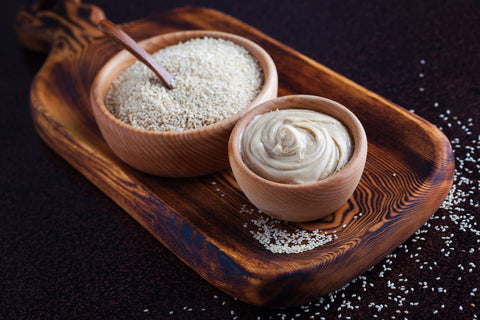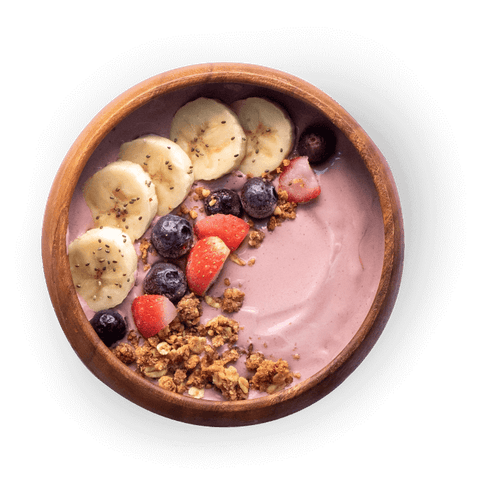More and more people are looking to reduce or eliminate added sugar from their diet. If you’ve tried giving up your usual desserts, you’ve probably wondered what changes occur in your body. Refined sugar, found in sweets, sodas, snacks, and many other products, has a major impact on health, even if you can’t see it with the naked eye.
Giving up sugar means eliminating or drastically reducing added sugar, not the one that comes naturally from fruits, vegetables, and dairy. Many people notice positive changes from the very first days, but the process can also bring challenges. Let’s see how the body reacts and how such a decision can help you.
How does the body react to sugar consumption?
When you eat products with added sugar, your body quickly absorbs glucose, and the spike in blood sugar triggers the pancreas to release insulin. This mechanism keeps blood sugar under control. If you often choose sweet foods, your body starts storing the excess as fat, contributing to weight gain. Over time, your body may stop responding effectively to insulin, increasing the risk of type 2 diabetes.
A high sugar intake also leads to chronic inflammation in the body. Experts link frequent sugar consumption with cardiovascular problems, diabetes, or digestive disorders. For example, high intake disrupts gut microbiota and favors the so-called “leaky gut,” where unwanted substances can pass into the bloodstream.
On the outside, you may notice effects such as persistent acne or dull skin. People with high sugar intake also see changes in their hair or nails, and over time, signs of premature aging may appear.
Sugar also influences mood. Eating sweet foods produces dopamine, neurotransmitters associated with pleasure, which is why many people feel a constant need for “just one more sweet snack” to cope with stress or fatigue.
Discover some sugar alternatives!
The brain’s reaction to sugar and addiction symptoms

Photo source: Shutterstock
The brain responds to sugar by activating reward circuits. The brain area called the nucleus accumbens reacts to sweets in the same way as it does to other pleasure-inducing substances. As a result, sugar cravings intensify over time, and the body demands larger portions to achieve the same effect.
Sugar addiction manifests through the difficulty of stopping consumption, even when you know it’s harmful. If you begin to gradually reduce or completely stop sugar, you may experience withdrawal symptoms such as:
-
headaches
-
pronounced fatigue
-
irritability
-
lack of focus or apathy
These reactions are normal at first and usually decrease within a few days to two weeks. During this time, the brain needs to restore its balance and reduce dependence. For instance, many people notice that after a period with lots of sweets, they feel drained of energy and have trouble concentrating.
What benefits can you get from giving up sugar?

Photo source: Shutterstock
When you limit added sugar, your body starts functioning more efficiently. Inflammation decreases, digestion stabilizes, and blood sugar levels become more consistent. Many people quickly notice effects such as increased energy, reduced bloating, and less water retention.
Changes can also be visible in the skin, which becomes clearer and brighter. People who cut sugar often report reduced acne and an overall better sense of well-being, also influenced by a balanced gut microbiota.
Emotionally, many adults say that after a period without sugar they can focus more easily and sleep better. Sweet cravings fade gradually, and temptations become easier to manage.
Concrete examples:
-
In the first week, sweet cravings and symptoms like headaches or irritability are common.
-
By the second week, the body begins to handle energy differently, and sugar cravings decrease.
-
After 3–4 weeks, most people notice mental clarity, increased energy, and even slight weight loss.
How to recognize and manage withdrawal symptoms
Quitting sugar abruptly sometimes causes discomfort, but these effects are temporary. You may notice:
-
pronounced fatigue
-
nervousness
-
headaches
-
intense sugar cravings
The duration of symptoms varies. Generally, after 5–7 days, the body begins to adapt. Here are a few ways to manage withdrawal more easily:
-
Increase fiber and protein intake – helps maintain satiety and control blood sugar.
-
Stay hydrated; sugar cravings sometimes appear due to dehydration.
-
Choose healthy snacks without added sugar: a handful of nuts, plain yogurt, or dried fruits such as organic goji berries.
-
For an energy boost, you can add ingredients like moringa powder, e.g., Bio Moringa Powder.
-
If symptoms persist, seek help from your doctor or a nutrition specialist.
Apply these recommendations gradually and listen to your body’s needs.
How to start cutting out sugar: practical tips
Giving up sugar often starts with small daily adjustments:
-
Check product labels, since hidden sugar can appear under names like glucose syrup, inverted sugar, corn syrup, or fructose.
-
Replace sweetened drinks with water, unsweetened teas, or natural smoothies.
-
Find healthy alternatives to sweets: unsweetened almond butter, such as BIO Cashew & Hazelnut Spread without added sugar, provides energy and good fats.
-
Plan meals ahead to avoid temptations and always have sugar-free options on hand. You can organize your week by including healthy snacks from superfoods and sugar-free snacks.
You can also try a gradual sugar elimination program, for example:
-
In the first week, cut out store-bought sugary drinks.
-
In the second week, limit industrial desserts and cookies.
-
In the third week, reduce or avoid sugary sauces and choose salads with simple dressings.
Persistence and support from family or friends help a lot. Write down your steps and achievements to keep your motivation strong.
What long-term effects appear and how to maintain the habit
Reducing sugar consumption over long periods lowers the risk of chronic diseases, helps control weight, and supports a balanced immune system. Taste buds become more sensitive, and fruits or other natural foods taste sweeter.
To maintain results and prevent relapse:
-
Prepare sugar-free snacks, such as seed bars, nut butter, or dried fruit.
-
Diversify your meals to include different food groups.
-
Don’t blame yourself for small slip-ups—focus on progress, not perfection.
Replacing processed sweets with natural alternatives, choosing products without added sugar, and diversifying your diet are key for a smooth and sustainable transition.










